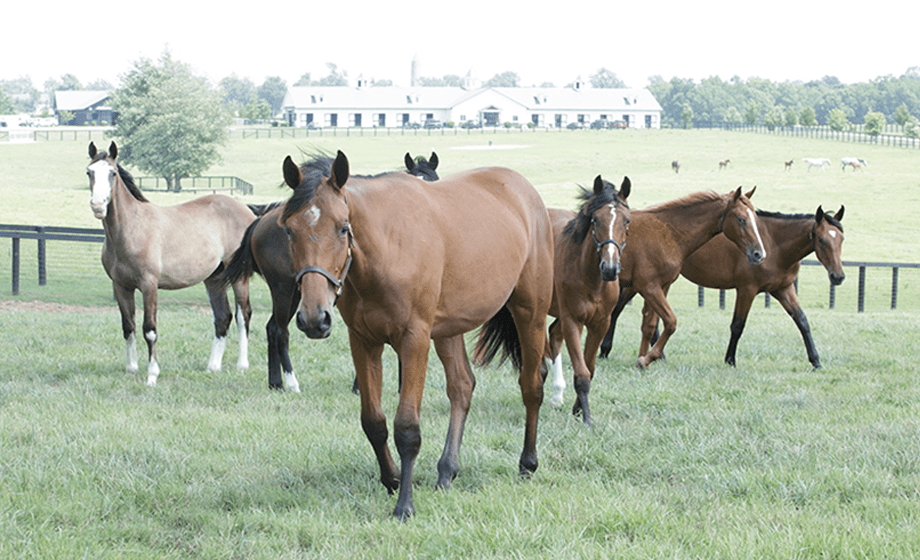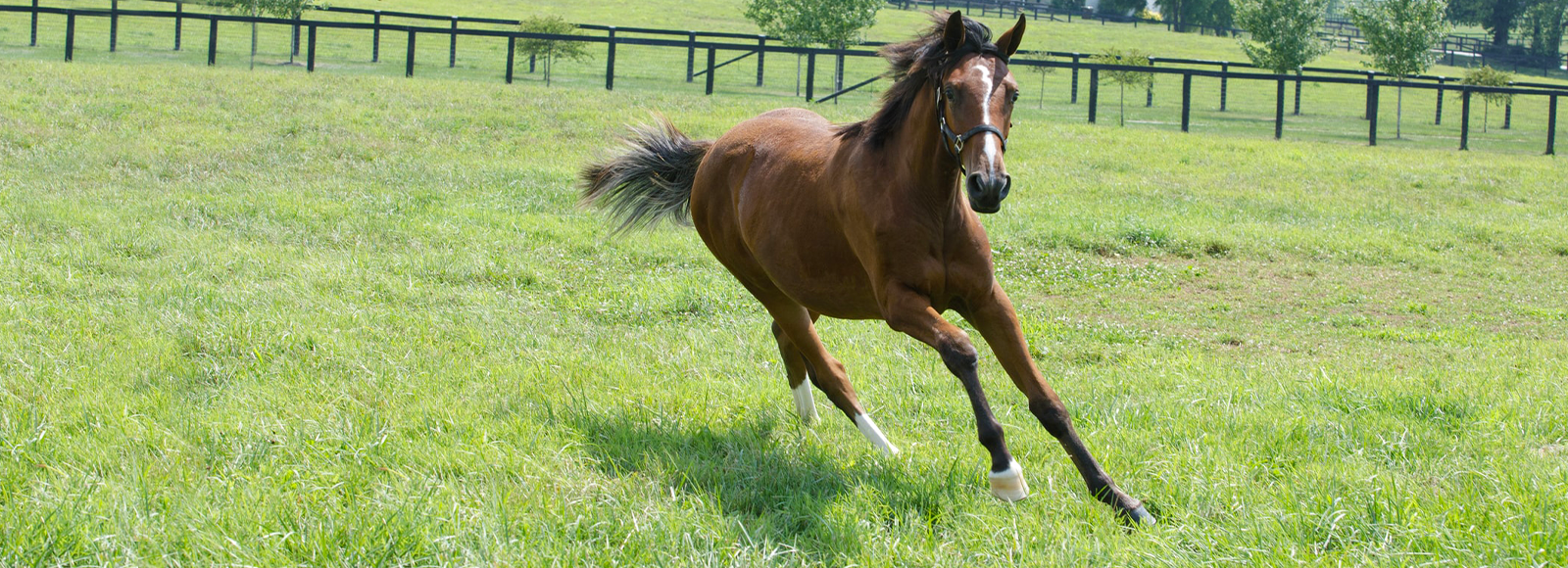
Equine Health Library
Young Horse
Young Horse Overview
Young horses’ immune systems are still immature, which renders them more susceptible to common respiratory viruses and parasites. Plus, their skeletal systems are still developing with many of the growth plates still open.
Make sure your veterinarian sees your growing horse at least twice per year for scheduled visits and more frequently if your horse’s demeanor or behavior changes. Developing horses can experience lameness and neurological problems related to growth, management (including diet), handling and training, so open communication with your veterinarian is critical for your horse’s long-term health and soundness.
Key healthcare action items for young horses (1-2 years of age)
- Pre-purchase exam for all sales
- Annual physical including eye, dental and lameness exams as well as body condition scoring and evaluation of conformation
- Timely fecal egg counts in case your horse requires a change in deworming regimen. Young horses are highly susceptible to many internal parasites
- Routine farrier care
Wellness & Prevention
Immunology
For most yearlings and two-year-olds, their immune systems have not been primed by repetitive exposure to a variety of infectious diseases, including parasites.
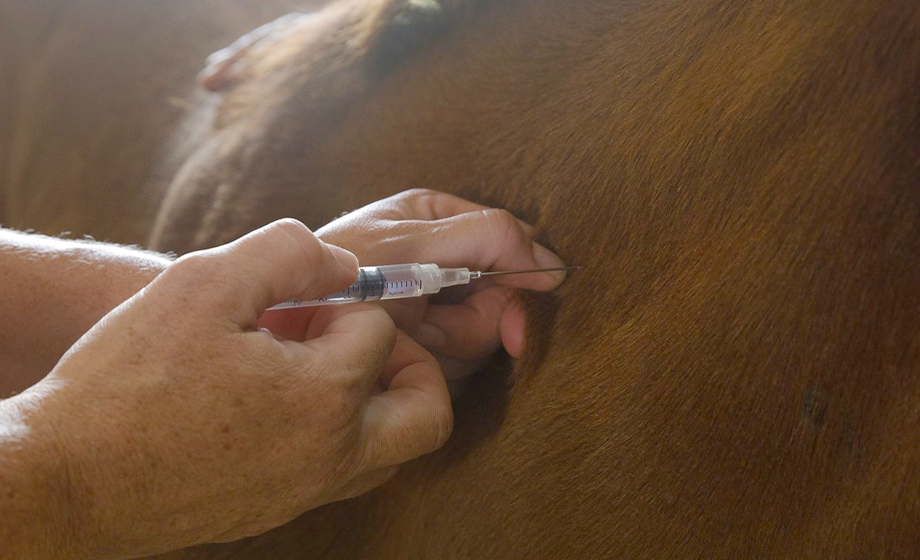
Parasitology
Young horses are at higher risk of becoming infected with parasites and shedding because of their immature immune system.
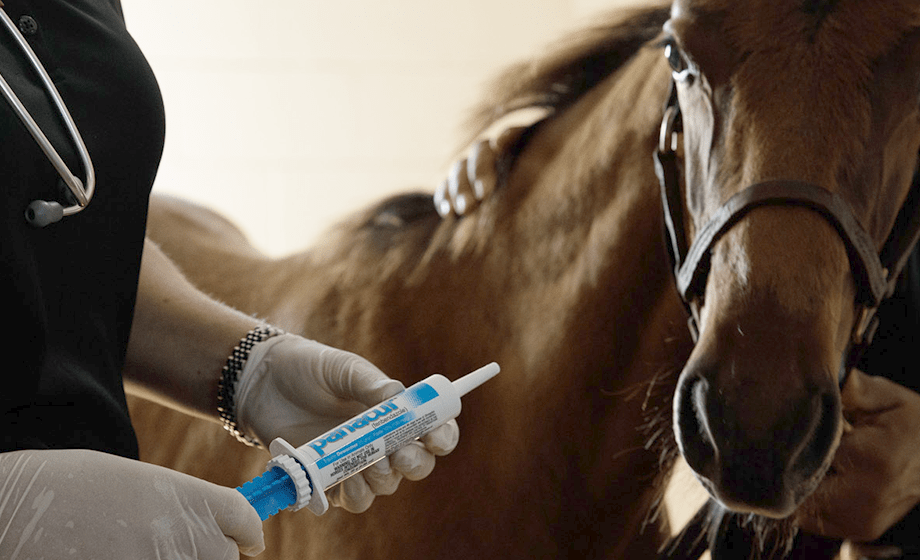
Nutrition
When feeding a growing horse, the most important consideration is not to let the horse gain weight too fast.
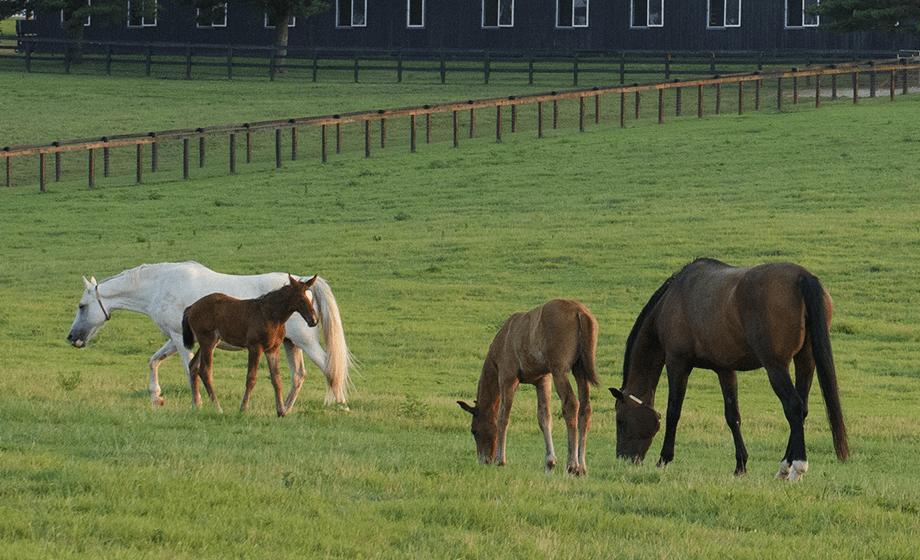
Dental Care
Now is a critical time to pay attention to your young horse’s teeth. Most horses are accepting a bit for the very first time, so make sure it’s a pleasant experience.
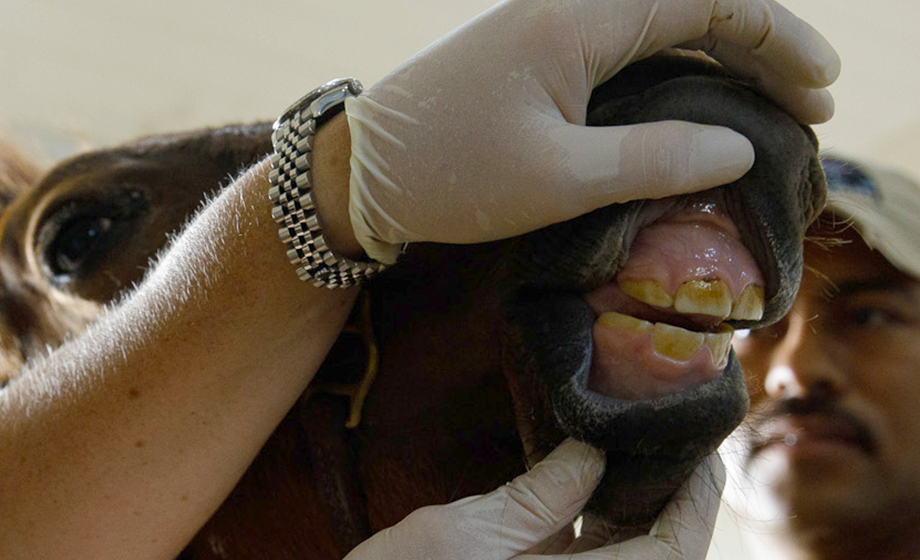
Hoof Care
It is best to have your young horse evaluated by a veterinarian for signs of acquired angular limb deformities that can be helped by proper trimming and/or shoeing.
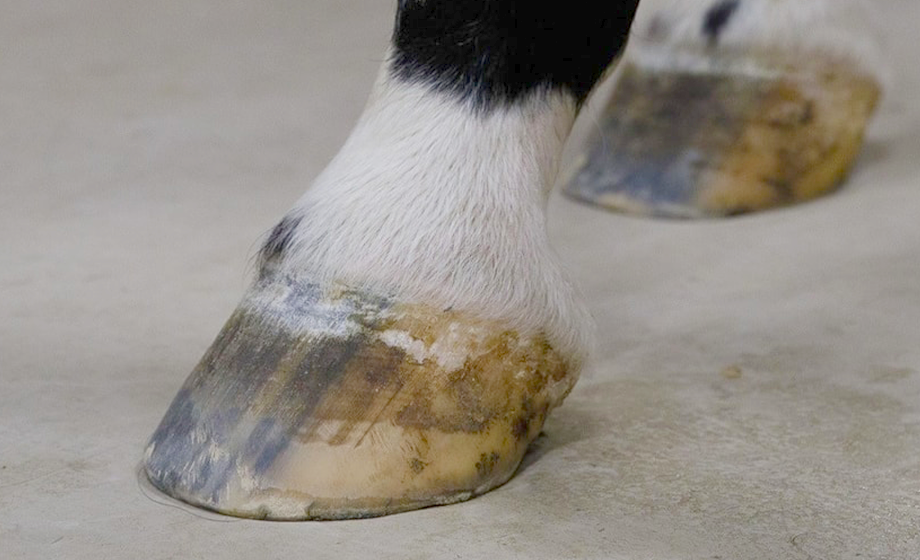
Health Conditions & Concerns
Neurologic
If you see neurologic signs in your horse – such as unsteadiness of gait or incoordination – it’s critical to have a veterinarian perform a complete neurological examination to help determine the cause and optimal therapy.
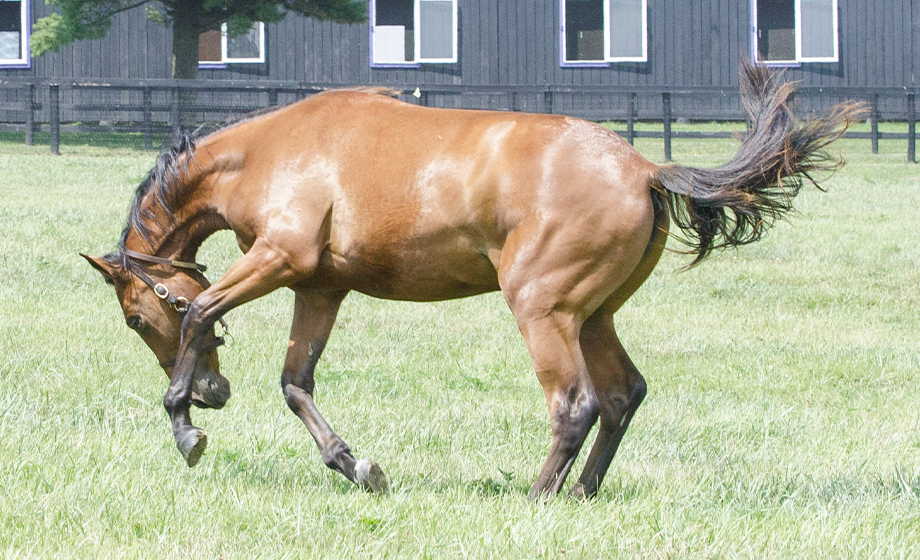
Gastrointestinal
A key concern in young horses is colic. If a young horse colics, common causes can be parasites and gastric ulcers.
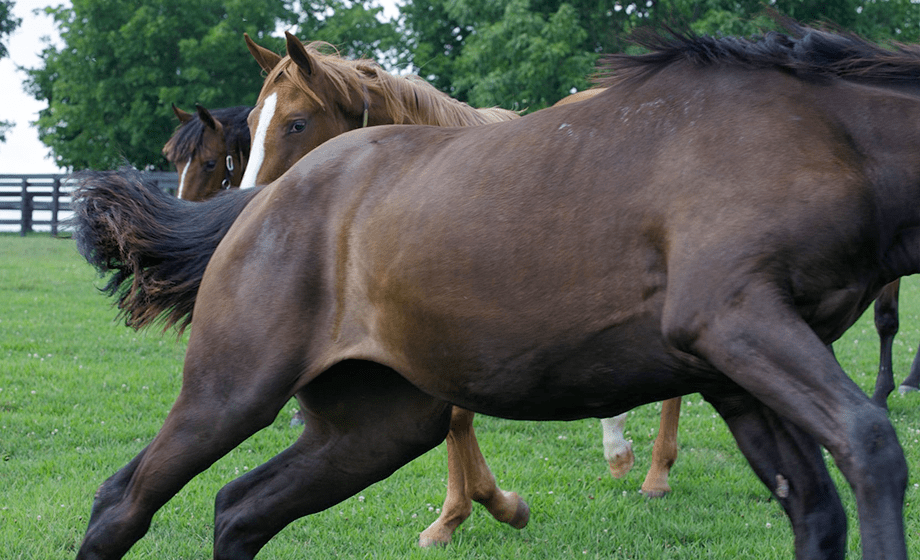
Respiratory
Infectious disease, migrating parasites and equine asthma can cause respiratory disease in younger equines.
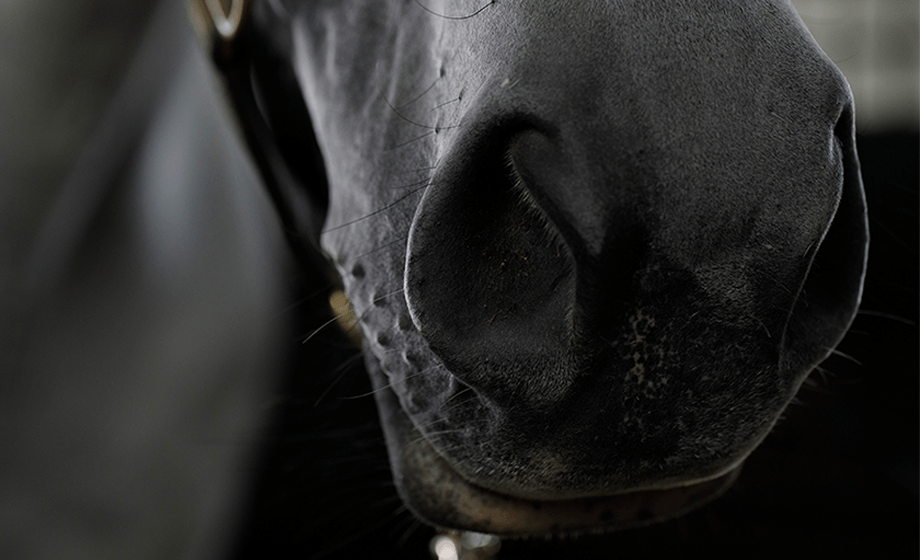
Musculoskeletal
Horses do not reach full skeletal maturity until they are 4 to 5 years of age. Many of the physes (growth plates) are still open and still susceptible to injury.
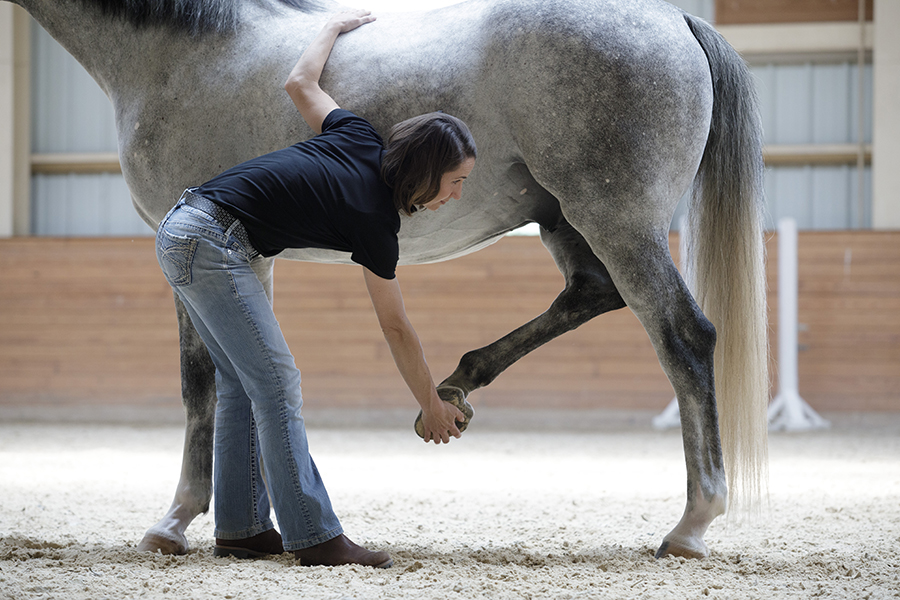
Other Concerns
When a young horse exhibits problems during training, it can be hard to determine if the reason is behavioral or physical.
